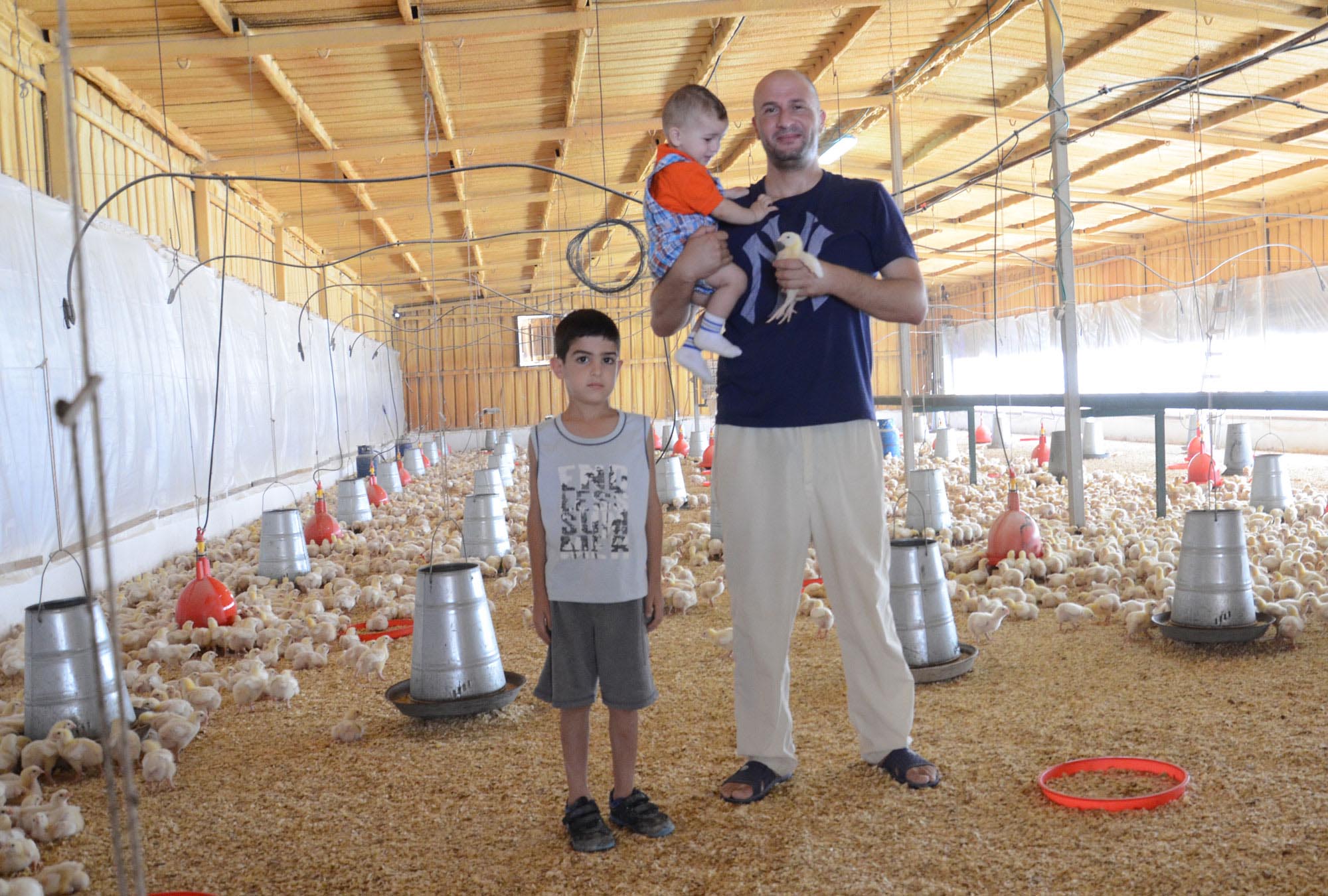COMMUNITY
Impact That Lasts: West Bank Poultry Co-op Still Thrives 40 Years Later
Sep, 2013
The Ramallah Farmers Poultry Cooperative began with a vision: 13 farmers would transform themselves from consumers to producers to lower prices and still make a profit. Farmers in the West Bank city of Ramallah had long suffered sky-rocketing prices of fodder and poultry that were always determined by the merchants.
“We were slaves to the mercy of the merchants,” explained Othman Al-Deek who manages the cooperative today. He had started selling poultry at the West Bank cooperative in 1984. He was later promoted to an auditor position, then factory manager, treasurer and vice president, eventually achieving his current position.
“The 13 farmers wanted to build a cooperative that would produce its own fair-priced chickens, feed and eggs, and eventually serve all the farmers and consumers in Ramallah and surrounding villages,” explained Othman.
The cooperative was founded in 1974 with modest capital and faced numerous obstacles and challenges during its earliest years. Many people from the agricultural community had even accused it of being an utter failure. They believed it would never succeed.
The farmers refused to give up. And, after a few years, they proved the dire predictions wrong. In 1978, Anera provided support to help build a feed processing factory, which allowed the co-op to expand production. In 1988, Anera provided more funds to purchase a state-of-the-art granulation machine.
“For the next four years,” Othman said, “the cooperative never stopped growing in production and profit.” Already in the late 1980s and 1990s, the coop’s profit had surpassed $280,000.
Facing Challenges in the West Bank Economy
But there was trouble on the horizon: the second Intifada erupted in 2002 and Ramallah was under siege. The cooperative suffered great financial losses. The hatching incubators were full, but there was no market to sell either eggs or hatched chicks.
“Tens of thousands of shekels were flushed down the drain, and we were forced to stop all operations at the factory,” recalled Othman.
Despite the violence, the demand for chicken feed remained, forcing the cooperative to buy from Israeli factories as a last resort. The halt in feed and poultry production severely affected the city and surrounding villages.
The cooperative barely survived, but again the cooperative’s members refused to give up. Their determination paid off. Today, the factory is thriving one again, producing some 1,500 tons of feed per month, with incubators producing 76,000 chickens a week.
The cooperative sells its poultry and fodder at very competitive prices, and directly benefits around 120 workers and farmers. The cooperative now counts 156 members.
Cooperative member Bashir runs his family poultry farm. He buys fodder and medicines from the cooperative on a regular basis. He also buys 6,000 chicks every 42 days, as each group matures into full-grown chickens he then sells to the local market.
Co-op manager Othman says they could never have achieved success without Anera’s helping hand and generosity. “Anera was the cooperative’s propellers in its most critical years, pushing it forward and helping it to grow.”
Othman considers the cooperative his life’s work. “I feel like I was born here. I’ve never considered myself a mere employee,” he adds. “I don’t feel obliged to work, but I put my heart and soul into everything I do.”




